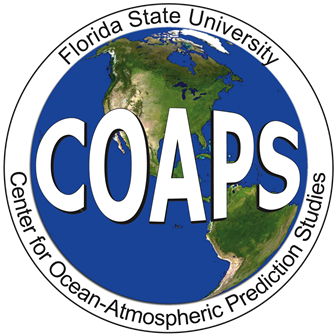
Dr. Mark Bourassa
Principal Investigator
This project has four science components: small high latitude storms and their impacts on coastal ocean circulation; identification of wind-driven upwelling in shelf regions; characterization and understanding of the wind variability associated with the Indian Ocean Dipole; and development of a technique for realistically representing small scale variability of winds in gridded wind products. We also freely distribute the products that developed and continue to provide scatterometer L2B swath products in the simplified format that we have developed.
In a broad sense, many of the project goals examine the importance of smaller-scale wind features. For example, small Arctic storms are often missing in reanalyses; orographic features modify wind driven upwelling, ocean color and sea surface temperature; and sea surface temperature gradients and surface currents modify surface wind fields. The coupling between surface stress, SSTs and upwelling can be observed, and provides insights into the physical processes related to this coupling. The impacts of currents on air-sea coupling are more complicated and being investigated. On a larger scale, we will examine the coupling between SSTs and winds associated with the Indian Ocean Dipole, including how the winds change when the IOD changes phase. We also link these winds to rainfall on the Indian subcontinent.
Coastal upwelling zones are of great importance to marine ecosystems, regulation of local climate, and have important consequences for global climate as well. Muller-Karger et al. (2005) has estimated that more than 40% of the carbon sequestration in the ocean takes place along the continental margins where upwelling can enhance primary production, which in turn leads to biological uptake of carbon that can eventually be permanently buried in marine sediments. Historically, upwelling zones along the earth’s continental margins have been identified over very broad spatial scales and typically seasonal temporal scales. High frequency (e.g., comparable to the atmospheric synoptic variability) coastal upwelling estimates are produced for certain well studied and observed coastal regions (e.g., the western continental U.S. coast) that are known to impact well-populated and developed areas. However, many remote regions remain largely void of routine observations or monitoring, despite their potential importance to marine ecosystems and climate variability. Observations of these regions by satellite scatterometers and other sensors provide an opportunity to infer coastal upwelling-favorable conditions.
We have recently found that the coupling between stress, sea surface temperature and surface currents is highly dependent on the parameterization of stress. In this case the coupling is measured in terms of a seasonally varying relationship between the cross frontal sea surface temperature gradient and the curl of the stress (e.g., O’Neill, 2012; O’Neill et al., 2010a, 2012b; Chelton et al., 2007; Maloney and Chelton, 2006). We use the observations to provide tuning for the conversion of equivalent neutral winds to stress. As part of this investigation, a high-resolution gridded wind and stress product will be produced. Most wind products are highly smoothed, removing a large fraction of features with length scales <600 km, even when those products are made on a 25 km grid. We combine scatterometer vector winds, radiometer speeds, passive polarimetric data and sea surface temperatures to greatly improve the quality of these small-scale features. This procedure also greatly reduces the impact of sampling-related changes in the observing system. We are also examining the use of scatterometer observations to validate high resolution coupled ocean/wave/atmosphere models.
For more information about the Scatterometer-Derived Stress and Ocean Modeling Studies, visit the Scatterometry and Ocean Vector Winds website.

